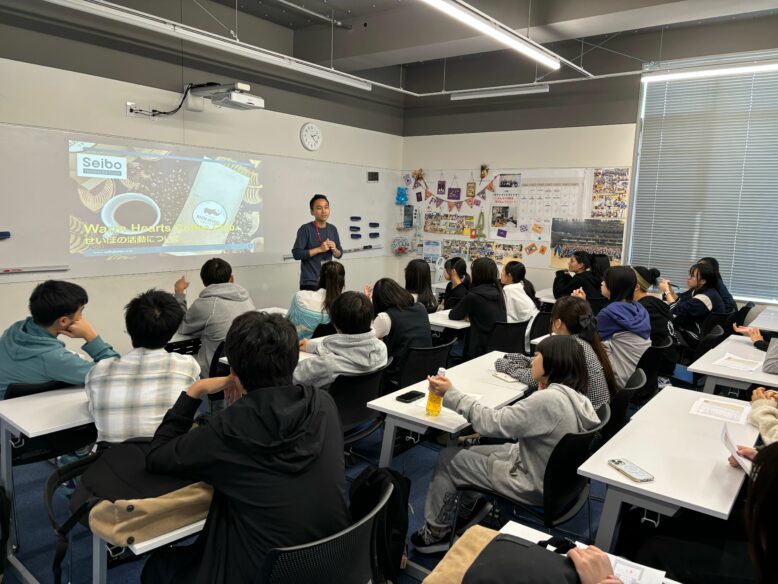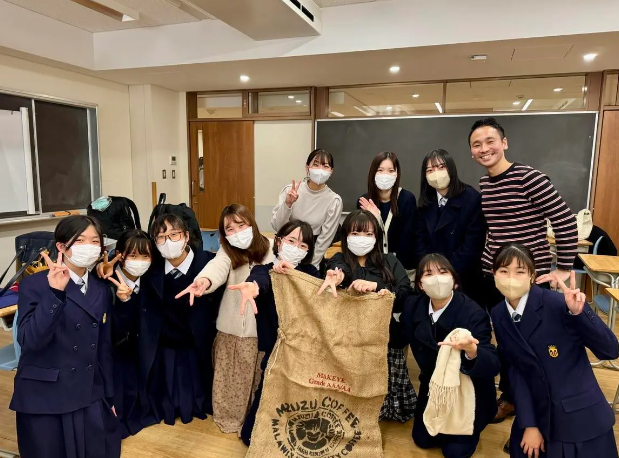
NPO Seibo collaborates with schools to widely implement inquiry-based learning and extracurricular activities. The foundation of these efforts lies in the principles of Education for Sustainable Development (ESD), supporting children in actively engaging with local and global challenges and taking actions toward realizing a sustainable society.
Specific Program Flow
Workshops and study sessions about Malawi, including its coffee-producing regions.
Student research, along with preparation for product sales.
Product promotion, sales activities, and donations.
Online interactions with local staff in Malawi and activities with Japanese staff.
For more details on the flow, see here.
Strengths and Benefits of the Program
①Experience Social Business
Through collaborations with companies such as UK-based Mobell (sharing a mission to address poverty issues) and Ataka Trading Company (promoting fair trade initiatives), students can engage in activities that demonstrate the synergy between corporations and NPOs.
②Develop a Roadmap for Sustainable Support
By exchanging information with Malawi, students gain insight into how their support reaches its destination and identify the next steps needed for effective aid. They are encouraged to ask questions and design their actions for future initiatives.
③Deepen Geographical, Historical, and Cultural Understanding
Learning about the social significance and history of fair trade coffee fosters inquiry into geography, history, and culture. This allows students to think about international support and business from multiple perspectives.
④Acquire Practical Skills and Social Skills
With support from Japanese staff, students can engage in marketing and sales, including digital aspects. These experiences help them develop transferable skills applicable beyond Malawi’s support activities, such as social and business-related skills.
Learn more about Mobell here and Ataka Trading here.
Seibo’s inquiry-based learning program is designed around the 17 Sustainable Development Goals (SDGs), addressing local and global issues with a focus on themes such as environmental conservation, poverty, and community challenges.
For example, students investigate Goal 1: “No Poverty” by studying Malawi and considering actionable support from Japan. To ensure the sustainability of their efforts, the program incorporates business methods, creating a model that can be passed down to younger students.
Through these activities, students gain hands-on experience with the inquiry process and develop a concrete understanding of “sustainability.”
For more on Seibo’s activities and the SDGs, please refer to this link.
NPO Seibo’s initiatives go beyond acquiring knowledge. They aim to cultivate critical thinking, empathy, and the ability to take action. By integrating ESD into the educational field, Seibo empowers each student to become a change-maker in their communities and the world, contributing to the creation of a sustainable society for the future.
For detailed information about the program and proposals for schools, see here.

You can find all the partners from here.


